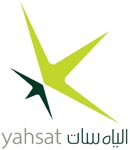South Sudan SCOOP and Yahsat join forces

Commenting on the appointment of SCOOP as a service partner for YahClick in South Sudan, Shawkat Ahmed, chief commercial officer of Yahsat, said: "We strongly believe in the market demand for affordable internet connectivity in a rapidly emerging market such as South Sudan. It is very important for Yahsat to make its much needed YahClick service as widely available as possible in this market. As a partner for YahClick, SCOOP will provide set-up and maintenance services for businesses and home users, contributing to building the nation's digital economy."
"YahClick will provide connectivity to South Sudan, including remote areas which have been affected by the recent internal conflicts and the poor economic situation, leaving parts of the Republic without any internet connection at all. YahClick is definitely a key solution to the current demand for reliable and affordable internet connection in the Republic. Residents of South Sudan can now enjoy reliable, high speed and affordable internet without having to wait for terrestrial telecommunications infrastructure to be installed in their location," said David Alan Cubbin, chief executive officer of SCOOP, South Sudan.
Satellite broadband connectivity in urban, rural and remote areas
Already enjoyed by consumers and enterprises in more than 10 countries including Nigeria, Iraq, Afghanistan, South Africa, Angola, and East Africa, YahClick will be made available in other countries in the Middle East, Africa, Central and South West Asia, providing much needed satellite broadband connectivity in urban, rural and remote areas.
YahClick is beamed via Y1B, Yahsat's second satellite that is the first Ka band service for Africa. The introduction of Ka band allows higher bandwidth communication by providing a 2-3 GHz increase in bandwidth, double the bandwidth available in Ku band and five times more than C band.
Established in February 2012, SCOOP was created to operate within South Sudan on a not-for-profit basis with the aim of hiring, training, mentoring and improving the information technology skills of local staff. This comes as an incentive to nurture and boost the South Sudanese economy and diversify away from its wholesale reliance on primary industries for jobs and wealth creation.








